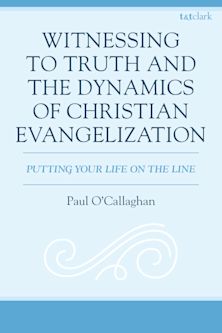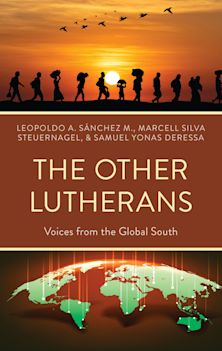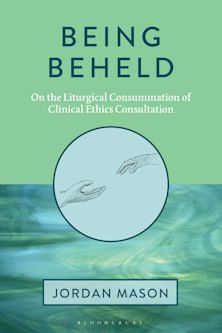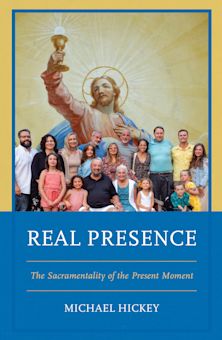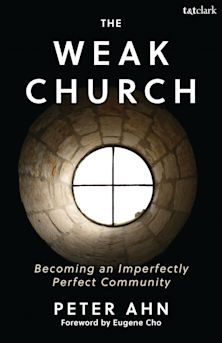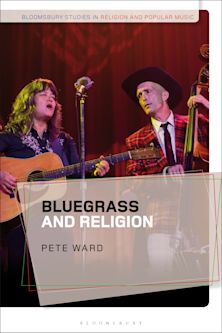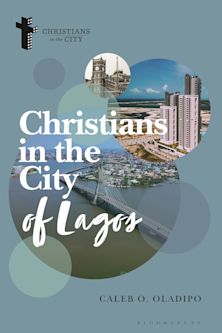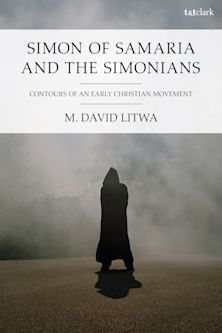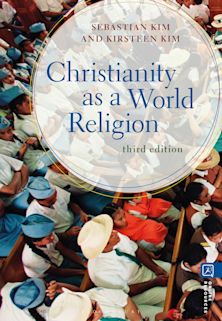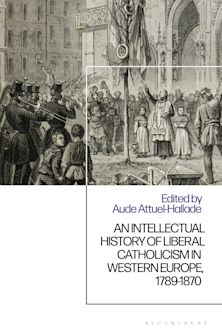- Home
- ACADEMIC
- Religious Studies
- Christianity
- Catholicism and Religious Freedom
Catholicism and Religious Freedom
Contemporary Reflections on Vatican II's Declaration on Religious Liberty
Kenneth L. Grasso (Anthology Editor) , Robert P. Hunt (Anthology Editor) , Francis P. Canavan (Contributor) , David S. Crawford (Contributor) , John F. Crosby (Contributor) , Avery Dulles (Contributor) , Robert P. George (Contributor) , Thomas Heilke (Contributor) , David T. Koyzis (Contributor) , William L. Saunders (Contributor)
Catholicism and Religious Freedom
Contemporary Reflections on Vatican II's Declaration on Religious Liberty
Kenneth L. Grasso (Anthology Editor) , Robert P. Hunt (Anthology Editor) , Francis P. Canavan (Contributor) , David S. Crawford (Contributor) , John F. Crosby (Contributor) , Avery Dulles (Contributor) , Robert P. George (Contributor) , Thomas Heilke (Contributor) , David T. Koyzis (Contributor) , William L. Saunders (Contributor)
You must sign in to add this item to your wishlist. Please sign in or create an account
Description
The late Pope John Paul II frequently invoked Dignitatis Humanae as one of the foundational documents of contemporary Church social teaching. In this timely new edited collection, Catholicism and Religious Freedom: Contemporary Reflections on Vatican II's Declaration on Religious Liberty, Kenneth L. Grasso and Robert P. Hunt have assembled an impressive group of scholars to discuss the current meanings of one the Vatican's most important documents and its place in the Church. Dignitatis Humanae understands itself as bringing "forth new things that are in harmony with the old." Today, forty years after its publication, the precise nature of these "new things" and their relationship to "the old" remain among the most important pieces of unfinished business confronting Catholic social thought.
The theological issues brought forth in Dignitatis Humanae go to the heart of the contemporary debate about the nature, foundation, and scope of religious liberty. Here, the contributors to this volume give these considerations the serious and sustained attention they deserve.
Table of Contents
Chapter 2 Dignitatis Humanae: The Freedom of the Church and the Responsibility of the State
Chapter 3 Two Concepts of Religious Liberty: Dignitatis Humanae v. the U.S. Supreme Court
Chapter 4 Dignitatis Humanae and the Development of Catholic Doctrine
Chapter 5 Dignitatis Humanae, the Catholic Concept of the State, and Public Morality
Chapter 6 The Promised Time of Dignitatis Humanae: A Radical Protestant Perspective
Chapter 7 Persuaded, Not Commanded: Neo-Calvinism, Dignitatis Humanae, and Religious Freedom
Chapter 8 On Proposing Truth and Not Imposing It: John Paul's Personalism and the Teaching of Dignitatis Humanae
Chapter 9 An Unfinished Argument: Dignitatis Humanae, John Courtney Murray, and the Catholic Theory of the State
Chapter 10 The Architecture of Freedom: John Paul II and John Courtney Murray on Religious Freedom
Product details
| Published | 19 Oct 2006 |
|---|---|
| Format | Ebook (Epub & Mobi) |
| Edition | 1st |
| Extent | 258 |
| ISBN | 9780742572706 |
| Imprint | Rowman & Littlefield |
| Publisher | Bloomsbury Publishing |
About the contributors
Reviews
-
The volume may be recommended, not because it settles any particular issues, but because it urges renewed consideration of a text that has been more taken for granted of late than actively and intelligently studied.
Joseph A. Komonchak, Catholic University of America, Commonweal Magazine
-
This book is a welcome contribution to the subject of Catholicism and Religious Freedom.
2007, Journal of Church and State
-
...important volume of essays....One of the book's great merits is the thoroughness with which these two men's writings on the subject are analyzed, compared, and applied to the question of how best to interpret DH.
2007, Fellowship of Catholic Scholars Quarterly
-
The existence of a right to religious freedom is now widely recognized, but the foundation, the nature, and the scope of this right remain hotly debated. The essays of this book carefully distinguish typical secular accounts of the theoretical basis of such a right from the account provided in terms of a truly Catholic understanding of the human person, society, and the nature of religious truth. This volume rightly asks whether Dignitatis Humanae constitutes a break with previous church teaching or a genuine development of doctrine and argues for rejecting the privatization of religion fostered by Enlightenment liberalism is incompatible with an authentic understanding of religious freedom and the social dimensions of religion. This volume will be a very welcome resource for anyone considering church-state relations and Catholic social teaching.
Fr. Joseph Koterski S.J., Fordham University
-
In an age of worldwide religious resurgence and of continuing controversy in the United States about the nature and limits of religious freedom, this book is both timely and unusual. Few Americans are aware of the radical change that has taken place in Roman Catholic teaching about religious freedom after Vatican II released its Declaration on Religious Liberty (Dignitatis Humanae) in the 1960s. This volume not only explains the significance of that Declaration but also takes up the challenge of its unfinished agenda for our day. Anyone interested in religious freedom and just governance should read this book.
James W. Skillen, executive director, The Center for Public Justice
-
Each of the essays is well thought out and deftly argued. The quality of argumentation is flawless, and the perspectives varied.
Journal Of Law and Religion














